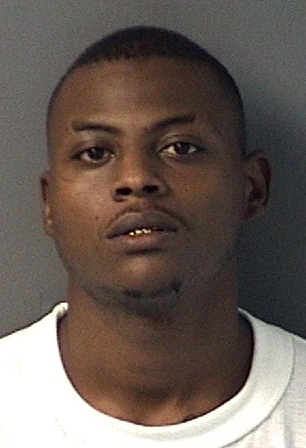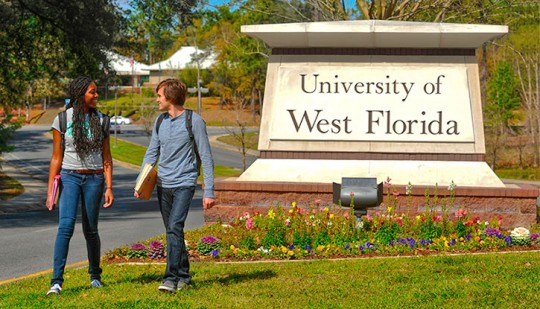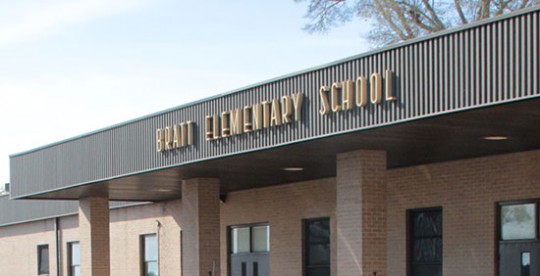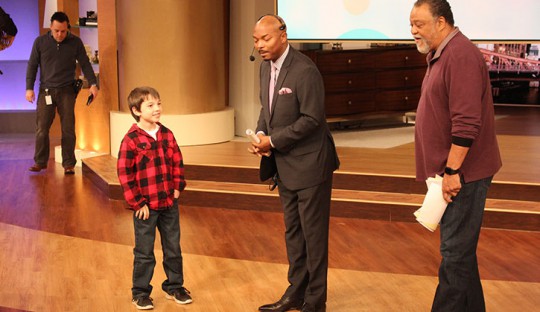Florida Gov’t Weekly Roundup: Getting Ready For The Season
January 14, 2017
On Monday night in Tampa, the Clemson Tigers dethroned the Alabama Crimson Tide in college football’s national championship game. The next few days in Tallahassee proved that there’s still a long way to go before we know who will come out on top in a different kind of season: the 2017 legislative session.
But the jockeying for position, which had died down a little bit over the holidays, returned to the spotlight.
 The battle over business incentives seems no closer to being resolved than it did weeks ago. House Speaker Richard Corcoran, R-Land O’ Lakes, and his allies are still against them. Gov. Rick Scott and many of his supporters are still for them. Into that fight stepped Ken Lawson, a Tallahassee insider and now the newly appointed head of the state’s tourism booster.
The battle over business incentives seems no closer to being resolved than it did weeks ago. House Speaker Richard Corcoran, R-Land O’ Lakes, and his allies are still against them. Gov. Rick Scott and many of his supporters are still for them. Into that fight stepped Ken Lawson, a Tallahassee insider and now the newly appointed head of the state’s tourism booster.
Leaders also laid out their ideas on higher education. Scott’s focus was on holding down fees in addition to an expansion of Bright Futures. Senate President Joe Negron, R-Stuart, wants more resources for universities and a slate of other changes in addition to the Bright Futures measure.
Thrown on top of all of that: gambling, gun bills, testing, ride-sharing and all manner of issues sure to draw plenty of lobbying and media attention until the final night of the legislative session. They won’t give out any trophies then, but just like a college football team’s fate can be decided early in the season, whoever emerges as a winner probably took some steps in that direction this week.
A JOB, IF YOU CAN KEEP IT
It’s safe to say there are few elected or appointed officials in state government who owe their position to Miami rapper Pitbull. Lawson, who was installed as the new head of Visit Florida this week, is one of them.
Lawson was tapped for the position by the Visit Florida board after the previous president and CEO, Will Seccombe, was ousted in the aftermath of a controversial, although expired, tourism-marketing contract with Pitbull. The board also agreed to pay $73,000 to the departing Seccombe.
Lawson, who was the secretary of the Department of Business and Professional Regulation before the appointment, will make $175,000 to lead his new agency.
The first task, according to Lawson, will be meeting Scott’s recommendations to make the agency more transparent. But even he understood there was another looming objective on the horizon.
“Also I’m going to make sure the Legislature understands the value of Visit Florida, and that we understand their role in overseeing us, so there are no questions in the future,” Lawson said after Tuesday’s board meeting.
Easier said than done. Lawmakers like Corcoran are showing increasing resistance to Scott’s expected budget request of $76 million for the spending year that begins July 1. Even before reports about the $1 million contract with Pitbull, whose real name is Armando Christian Perez, Corcoran was spearheading a push against state spending to boost industries, whether through Visit Florida or incentives offered by public-private Enterprise Florida.
Corcoran has even hinted at questions about whether Visit Florida should exist. One part of Lawson’s job will be to convince lawmakers that he should have one.
Scott got support from the Florida Chamber of Commerce in another part of the incentives battle this week, when the organization threw its weight behind the governor’s bid to set aside $85 million for incentives through Enterprise Florida.
During a news conference Thursday to release legislative priorities for the upcoming session, Florida Chamber President and CEO Mark Wilson said the business group “fully” supports Scott’s proposal. Wilson said more than 90 percent of jobs are created in Florida without the use of incentives but that limited use of such money is needed to compete for “high-wage, high-skill jobs.”
“When we helped create Enterprise Florida in the mid-’90s, 20 years ago, the intent then and the intent now is that incentives and marketing dollars are incredibly important and incentives should rarely be used,” said Wilson, a member of the Enterprise Florida board. “But, when they are appropriate, they are the difference maker.”
Those pushing against incentives also found a new foothold: settlement money from the 2010 Deepwater Horizon disaster. The head of the new House Select Committee on Triumph Gulf Coast said the panel will look to spend the money on things other than directly attracting tourism or business.
“We are not going to be focused on direct economic incentives. That’s not what we think is the best use of the dollars,” Chairman Jay Trumbull, R-Panama City, said after the committee’s first meeting Thursday. “But we do believe that there are many opportunities to spend the money in ways that don’t have to be direct incentives.”
GOVERNMENT U
Since he was first designated as president for the current legislative term, Negron has signaled that he would launch a major push to strengthen the state’s higher education system. He spoke at his designation ceremony of spending another $1 billion on universities over the next two years, and went on a listening tour of the 12 university campuses last spring.
This week, lawmakers, lobbyists and higher education officials got the clearest look yet at what Negron has in mind, when the Senate released two bills (SB 2 and SB 4) outlining proposed changes.
The measures are part of a wide-ranging plan to reshape higher education that includes an expansion of Bright Futures scholarships, block tuition for universities, stronger requirements for students to graduate on time and a program to attract high-quality faculty.
“These bills are key components of a comprehensive higher education agenda that will boost the strength and competitiveness of our state’s higher education system as our primary economic engine to drive vibrant, sustainable economic development and growth in high-paying jobs,” Negron said in a statement.
The legislation would increase the top-level award for the merit-based Bright Futures scholarships to cover all tuition and fees and provide a $300 per semester stipend for books, and allow top-level Bright Futures recipients to use their scholarships for summer classes. The Senate’s Bright Futures changes would cost an estimated $151 million.
The plan would also allow out-of-state students to qualify for scholarships for National Merit Scholars, boost spending on need-based financial aid and institute block tuition, which would charge students for 15 credit hours each semester, rather than having them pay per hour. That would ideally incentivize students to take more hours and graduate earlier.
The bills followed Scott’s opening bid on higher education: capping student fees and eliminating sales taxes on textbook purchases in addition to extending the Bright Futures scholarships to summer classes for all recipients.
That’s in line with how Scott has often addressed the costs of higher education — by ratcheting down the ways that colleges and universities charge students to fund their education, sometimes over the objections of administrators who say the moves make it difficult to provide high-quality services.
“Florida students should have every opportunity to earn a degree in four years without graduating with mountains of debt,” Scott said in a statement. “While we have fought to make higher education more affordable by holding the line on undergraduate tuition, there is much more that can be done to help students.”
THE SIFTING BEGINS
The first few weeks of committee meetings in Tallahassee are often where the issues that will dominate the legislative session are separated from those that will fade in importance once March rolls around. Right now, there’s still some sorting to be done.
Meetings around the Capitol offered an almost cacophonous array of proposals that included limits or loosened restrictions on guns; term limits for appellate judges; a measure that would prevent local governments from regulating app-based transportation services such as Uber and Lyft; and a push for fewer standardized tests in Florida schools.
One of the marquee proposals to emerge, though, came without a related committee hearing, when Sen. Bill Galvano released a sweeping, 112-page gambling bill (SB 8). The title of the bill — essentially a summary of what it would do — ran 11.5 pages on its own.
Galvano, R-Brandenton, is scheduled to be a future Senate president and was instrumental in the passage of the Legislature’s last major gambling bill when he was in the House.
His newest pitch would allow slot machines in eight counties where voters have approved them, let South Florida pari-mutuels run blackjack games, and give tracks permission to do away with greyhound racing while keeping lucrative cardrooms and slots.
Galvano called his blueprint a starting point as lawmakers gear up to deal with a potential gambling agreement being negotiated by the Seminole Tribe, Scott’s staff and legislative leaders.
“To effectively address an issue like gaming that involves an almost century-old industry and a sovereign within our own borders, it has to be rolled out procedurally correct. The bill that has been filed is comprehensive on the industry side,” Galvano told The News Service of Florida. “It really includes most everything that has been discussed of late.”
Negotiations with the Seminoles are underway after a portion of a 20-year deal, called a compact, expired in 2015. That portion gave the tribe the exclusive rights to operate “banked” card games such as blackjack.
But a federal judge in November ruled that the Seminoles could continue to offer blackjack because the state had breached the agreement by permitting controversial “designated player” games at pari-mutuel cardrooms. U.S. District Judge Robert Hinkle ruled that the designated player games violate a state law prohibiting games in which players bet against the house.
Galvano’s soup-to-nuts proposal would make legal the designated player games.
His plan would also allow slots in eight counties where voters have approved them — a shift away from what lawmakers previously have been willing to authorize and something the Seminoles have opposed. The current compact, signed in 2010, gives the tribe “exclusive” rights to operate slot machines outside of Miami-Dade and Broward counties.
Galvano said he expects the Senate Regulated Industries Committee to take up the measure at its next meeting Jan. 25, as lawmakers prepare for the March 7 start of the annual session. As in previous years, passage of any gambling proposal remains “a heavy lift,” Galvano said.
“But here it is, second committee week. We’ve got a bill out. I’m going to make an effort to see if we can get there,” he said.
STORY OF THE WEEK: Visit Florida got a new leader as the agency braces for a heated fight over incentives and marketing money in the 2017 legislative session.
QUOTE OF THE WEEK: “Citrus is part of the character, agriculture is part of the character of the state. It’s more than just economics, it’s part of the character of who we are. I want to make sure that agriculture has what it needs to survive, but at the same time I’m cognizant that we’re spending other people’s money.”— House Agriculture & Natural Resources Appropriations Subcommittee Chairman Ben Albritton, R-Wauchula, on funding for efforts to fight citrus greening.
by Brandon Larrabee, The News Service of Florida
Atmore’s Escambia County High Named A ‘Failing School’
January 14, 2017
Alabama education officials released a list of the state’s worst schools, and one Atmore school made the list.
 The Alabama Department of Education released their “failing schools” list, the 75 lowest performing schools in the entire state. Escambia County High School in Atmore was only school in Escambia County, AL, to be deemed as failing by the state.
The Alabama Department of Education released their “failing schools” list, the 75 lowest performing schools in the entire state. Escambia County High School in Atmore was only school in Escambia County, AL, to be deemed as failing by the state.
Officials are required by state law to released the list and identify the schools that score in the bottom 6-percent of standardized tests each year.
Students who live in the attendance zone of a failing school like Escambia County High School can request a transfer to another school in the same district, or qualify for a tax credit or a private scholarship funded by tax credits to attended a private school.
Century Man Found Not Guilty Of Attempted Murder In Bar Shooting
January 13, 2017
A Century resident that was charged with attempted murder will walk out of jail as a free man today.
 An Escambia County jury on Thursday found Kendrick Jamar Washington not guilty on a charge of attempted murder for a 2015 shooting at Odom’s Bar in Century. An additional charge of possession of a weapon by a convicted felon will be dropped Friday, according to the State Attorney’s Office, and Washington will be released from the Escambia County Jail. He’s been jailed since his arrest on October 20, 2015.
An Escambia County jury on Thursday found Kendrick Jamar Washington not guilty on a charge of attempted murder for a 2015 shooting at Odom’s Bar in Century. An additional charge of possession of a weapon by a convicted felon will be dropped Friday, according to the State Attorney’s Office, and Washington will be released from the Escambia County Jail. He’s been jailed since his arrest on October 20, 2015.
The Escambia County Sheriff’s Office and Escambia County EMS were called to Odom’s Bar on North Century Boulevard at the Alabama state line about 11:50 p.m. on October 11, 2015.
Investigators quickly developed Washington as a suspect after witnesses said he shot David Darnell McCall following an argument over Washington’s girlfriend. McCall was transported first by private vehicle to D.W. McMillan Hospital in Brewton and later to Baptist Hospital in Pensacola where he was treated for a gunshot wound to his head.
Ex-Employee Charged With Stealing From Cantonment Business
January 13, 2017
A now-former employee has been arrested for stealing equipment from a Cantonment business and then pawning it.
 Michael Anthony Patterson, 44, is charged with multiple counts of felony providing false owner information on pawned items, multiple counts of dealing in stolen property and additional counts of grand theft.
Michael Anthony Patterson, 44, is charged with multiple counts of felony providing false owner information on pawned items, multiple counts of dealing in stolen property and additional counts of grand theft.
Patterson allegedly stole two Honda generators valued at $2,000 from that garage of A-1 Small Engines on Highway 29 while he was employed at the business. He then pawned both generators for $310 total at a Pensacola pawn shop, according to an Escambia County Sheriff’s Office report. The business owner was able to pay the $310 and recover the generators after they were identified by serial numbers and unique markings.
He is also charged with stealing and pawning additional items, including plasma cutters and welding equipment. A-1 was able to buy back most of the items at pawn, except for one plasma cutter.
Patterson remained in the Escambia County Jail where he is being held without bond.
Major Gambling Proposal Emerges In Florida Senate
January 13, 2017
A senator instrumental in the passage of the Legislature’s last major gambling bill released a massive proposal Thursday that would allow slot machines in eight counties where voters have approved them, let South Florida pari-mutuels run blackjack games, and give tracks permission to do away with greyhound racing while keeping lucrative cardrooms and slots.
Sen. Bill Galvano, R-Bradenton, called the bill (SB ![]() a starting point as lawmakers gear up to deal with a potential gambling agreement being negotiated by the Seminole Tribe, Gov. Rick Scott’s staff and legislative leaders.
a starting point as lawmakers gear up to deal with a potential gambling agreement being negotiated by the Seminole Tribe, Gov. Rick Scott’s staff and legislative leaders.
 “To effectively address an issue like gaming that involves an almost century-old industry and a sovereign within our own borders, it has to be rolled out procedurally correct. The bill that has been filed is comprehensive on the industry side,” Galvano told The News Service of Florida. “It really includes most everything that has been discussed of late.”
“To effectively address an issue like gaming that involves an almost century-old industry and a sovereign within our own borders, it has to be rolled out procedurally correct. The bill that has been filed is comprehensive on the industry side,” Galvano told The News Service of Florida. “It really includes most everything that has been discussed of late.”
Negotiations with the Seminoles are underway after a portion of a 20-year deal, called a compact, expired in 2015. That portion gave the tribe the exclusive rights to operate “banked” card games such as blackjack.
But a federal judge in November ruled that the Seminoles could continue to offer blackjack because the state had breached the agreement by permitting controversial “designated player” games at pari-mutuel cardrooms. U.S. District Judge Robert Hinkle ruled that the designated player games violate a state law prohibiting games in which players bet against the house.
Galvano’s soup-to-nuts proposal would make legal the designated player games.
His plan would also allow slots in eight counties where voters have approved them — a shift away from what lawmakers previously have been willing to authorize and something the Seminoles have opposed. The current compact, signed in 2010, gives the tribe “exclusive” rights to operate slot machines outside of Miami-Dade and Broward counties.
The 2010 compact called for $1 billion in guaranteed payments to the state over five years, and the tribe has exceeded that amount. The money is a combination of revenues the Seminoles earn from slot machines and card games.
“They’ve been good partners with us, and the funds are substantial. But it’s hard to ignore voters in eight counties that are telling us that they not only want these games but they want the revenues and the economic development that come from them,” Galvano said. “So when you look at gaming comprehensively, you can’t ignore the economic development that comes on the private industry side and simply just look at revenue that comes on the compact side.”
Galvano’s bill also builds on a proposed agreement struck by Scott and the tribe in late 2015 in which the Seminoles agreed to pay the state $3 billion over seven years in exchange for craps and roulette.
The proposed agreement never went into effect because the Legislature failed to give it the requisite stamp of approval.
Galvano, who is slated to take over as Senate president in 2018, said lawmakers need to decide what kind of gambling policy they want the state to have before making decisions about the types of games the tribe should be allowed to conduct.
“I know that we have to create a new agreement with the tribe. But now we have a basis for them to know what’s coming and to negotiate on the components of something, as opposed to sending a compact to us only to have a death by a thousand amendments. That’s what I want to avoid,” said Galvano, who is reprising his 2010 role as one of the Legislature’s chief negotiators with the tribe.
Galvano’s 112-page proposal includes elements sought by the state’s influential pari-mutuel industry — such as “decoupling” of dog racing and most horse racing. If decoupling occurs, tracks would not be required to run live races while being able to offer other forms of gambling, such as cardrooms.
The measure also would set up a regulatory structure for “fantasy” sports in Florida, requiring operators to pay an initial $500,000 licensure fee and an annual $100,000 renewal fee.
House Commerce Committee Chairman Jose Felix Diaz, Galvano’s counterpart in the gambling negotiations, tweeted a response to the proposal Thursday evening.
“@FLSenate look forward to reviewing this bill and working with @BillGalvano @FLGovScott the FL House and the Tribe on this imprtnt project,” Diaz, R-Miami, wrote.
Galvano released his proposal hours after the House Tourism & Gaming Control Subcommittee learned about issues surrounding the compact from a state economist and gambling regulators.
Galvano said he expects the Senate Regulated Industries Committee to take up the measure at its next meeting Jan. 25, as lawmakers prepare for the March 7 start of the annual session. As in previous years, passage of any gambling proposal remains “a heavy lift,” Galvano said.
“But here it is, second committee week. We’ve got a bill out. I’m going to make an effort to see if we can get there,” he said.
by Dara Kam, The News Service of Florida
UWF Teams With Amazon To Develop Work-Study Partnership
January 13, 2017
The University of West Florida and Amazon.com are launching a corporate work-study partnership – the first in the state of Florida. The partnership forms a pathway to employment with the company.
This unique opportunity allows UWF students to earn money working for Amazon virtually while they attend the University. Students will work with a mentor and establish future connections with the company.
“This partnership with Amazon is the first in our state and enhances UWF’s efforts to support our students while they are in school and to provide pathways to excellent careers,” said Dr. Martha Saunders, UWF President. “I give this initiative two thumbs up!”
Amazon is an online retailer that pioneers and provides innovative products and services globally.
The contract will be signed this month and the program will launch in Fall 2017. Amazon will begin recruiting on campus this semester.
The positions available include customer service, virtual programs, engineering, finance, human resources, transportation, supply chain/fulfillment and international expansion.
House Won’t Consider Using BP Money For Incentives
January 13, 2017
Don’t expect settlement money from the 2010 Deepwater Horizon disaster to be used directly to attract tourists or new businesses into Escambia County, House lawmakers said, as they consider how to flow the cash into Gulf Coast counties.
Rep. Jay Trumbull, R-Panama City, said Thursday he expects his Select Committee on Triumph Gulf Coast will instead look at designating the money for infrastructure and education projects that help entire communities.
“We are not going to be focused on direct economic incentives. That’s not what we think is the best use of the dollars,” Trumbull said after the committee’s first meeting. “But we do believe that there are many opportunities to spend the money in ways that don’t have to be direct incentives.”
 The select committee, comprised of Republican lawmakers from Northwest Florida, was created to oversee how 75 percent of settlement payments received by the state are distributed to the eight Panhandle counties most impacted by the disaster, as required by a 2013 state law.
The select committee, comprised of Republican lawmakers from Northwest Florida, was created to oversee how 75 percent of settlement payments received by the state are distributed to the eight Panhandle counties most impacted by the disaster, as required by a 2013 state law.
Those counties are: Bay, Escambia, Franklin, Gulf, Okaloosa, Santa Rosa, Walton and Wakulla.
The other 25 percent goes to 15 other counties along the coast.
The law also created Triumph Gulf Coast, a non-profit organization within the Department of Economic Opportunity, to direct money to the eight counties for economic recovery projects, tourism efforts, educational grants and infrastructure projects.
Florida is in line to eventually receive up to $2 billion from the $4.9 billion that is to be paid by BP to resolve Gulf Coast economic claims arising from the Deepwater Horizon disaster, said Drew Bartlett, the Florida Department of Environmental Protection’s deputy secretary for ecosystem restoration.
The state received $400 million last year and is expected to get $106.7 million a year from 2019 through 2033.
Additional money is coming into the state and counties through separate agreements with other businesses involved in the disaster.
“So far, authorized in Florida, we’ve got a bunch of projects rolling — 100 of them — at $289 million through all these different funding streams,” Bartlett said. “We’re putting the money to work right now. There is a lot more coming.”
Prior to the House committee meeting, a trio of senators filed a measure that clarifies that the settlement money headed to the eight Gulf Coast counties is to include payments from BP received by the state before the settlement was formally finalized.
“By clarifying the requirements under current law, this legislation ensures a smooth transfer of funds to Triumph Gulf Coast, Inc., not only for the funds the state recently received, but also for any future settlement payments,” Sen. Doug Broxson, R-Gulf Breeze, said in a release.
Broxson sponsored the proposal (SB 364) with Sens. George Gainer, R-Panama City, and Bill Montford, D-Tallahassee.
“Nearly seven years after the spill began, on a daily basis, we are still hearing from constituents whose families and businesses were drastically impacted,” Montford said in the release. “This legislation affirms our longstanding commitment to keep these critical funds in Northwest Florida to provide for the ongoing economic recovery of our region.”
Trumbull said his committee will look at the Senate proposal.
“I know that the Senate is working towards keeping the dollars in the Panhandle, and that’s something we’re all coalesced (around) to make sure that happens,” Trumbull said.
by Jim Turner, The News Service of Florida
Bratt Elementary Releases Latest Honor Roll
January 13, 2017
The following students were named to the second nine weeks honor roll at Bratt Elementary School:
AB HONOR ROLL
Kindergarten – A Honor Roll
Alexis Amerson
Eric Anthony
Sadie Baker
Landen Barlow
Abigail Brown
Alysa Bryan
Jaxon Byrd
Jerick Cooper
Carson Eady
Aubrey Flowers
Pryce Flowers
Kintley Flowers
Josyah Fontenot
Christian Fountain
Olivia Garrett
Nathan Gilmore
Autumn Heist
Sophia Ikner
Maybree Johnson
Noah Luker
Ava Marquis
Parker Marsh
Ava McCann
Mya McCants
Briley Moore
Demeatree Moorer
Natalia Morales
Rainey Nelson
Jonathan Patrick
Jade Presley
Madison Rice
Ashton Roberts
Caden Sanspree
Kaden Seelig
Kimmora Thomas
TyDereon Thomas
Javan Thompson
James Thompson
Brooklyn Turk
Na’Kiyah Williams
Taryanna Wright
First Grade – A Honor Roll
Govan Alexander
Landon Allcock
Gabrielle Boatwright
Jamarreai Davison
Logan Diller
Parker Ganey
Elizabeth Gilley
Sawyer Gilmore
Brody Hall
Camden Jacobson
John McAnally
Hunter Parker
Makinzi Roley
Adalynn Southard
Cassandra Stilwell
Kennedy Ward
Kaylee Wilson
Second Grade – A Honor Roll
Lexi Bingham
Christian Caraway
William Classen
Carlie Davis
Jacobi Dougall
Cathryn Greenwood
Lori Hall
Presley Johnson
Kaylee Long
Mikayla McAnally
Dakota Richardson
Miles Smith
Avery Stuckey
Third Grade -A Honor Roll
Desiray Bagwell
Wade Bailey
Bailey Blackwell
Jackson Bridges
Nevaeh Bush
Addison Classen
Tristan Crumm
Mary-Clayton Dawson
Talise Gregson
LanDon Johnson
Jackson Simmons
Jasmine Zisa
Colton Criswell
Fourth Grade – A Honor Roll
JaCee Dortch
Noah Faulkner
Jamison Gilman
Zyein Harris
Mary Catherine Hughes
Laura Laborde
Colby Pugh
Ally Richardson
Maggie Scott
Fifth Grade – A Honor Roll
Raegan Abbott
Sarah Bailey
Haydn Baker
Carsyn Dortch
Maggie Godwin
Ava Gurganus
Leah Hetrick
Allyson Jones
Jaquez Moorer
Jacob Spence
Emily Stilwell
Bentley Van Pelt
AB HONOR ROLL
1st Grade – AB Honor Roll
Tyler Amerson
Eli Anthony
Marquis Banks
Serenity Conway
Braxton Dinc
Jacob Dove
O’Neshia DuBose
Evelyn Esparza
Zachary Flowers
Aubrey Hadley
Sandra Hall
Ashleigh Harris
Anthony Johnson
Jaivion Kyles
Peyton Lee
Caleb Nezovich
Levi Peters
Jakel Phifer
Alivia Pierce
Madalynn Pittman
Brooklyn Reynolds
Christian Roberts
Annsleigh-Nikole Rodriguez
Chloe Satterwhite
Jackson Sellers
Breah Shelly
Noah Spence
Wyatt Spence
Kameryn Thompson
2nd Grade – AB Honor Roll
Margaret Baker
Montgomery Baker
Luke Bryan
Amara Campbell
Madilynne Cardwell
Crimson Davis
Kylar Davis
Nolan Eady
Hayden Gipson
Jackson Helton
Savannah Lowry
Khloe Mason
Logan Morris
Makayla Plato
Jamie Roberts
Jake Taylor
Raleigh Warr
3rd Grade – AB Honor Roll
Lauren Abbott
Ellie Adkins
Claire Amerson
Kylie Bailey
Isaiah Boatwright
Lindsey Brown
Michael Butler
Tyler Carach
Luke Chavers
Richard Clarke
Zakhel Clemmons
Talaysha Curry
Aakira Davis
Jordan Dawson
Addison Eicher
Allison Flowers
William Heard
Fallon Hubbard
Emily Jarvis
Tristan Johnson
Daniel Johnson
Jessica Jowers
Maxwell Mason
Samantha Minchew
Carley Moore
Kayleb Nicholson
Braylan Shelly
Justy Starns
Maggie Stewart
Charles Waters
Mya Wilson
4th Grade – AB Honor Roll
Luke Amerson
Kinslee Coker
Payton Daw
Richard Emmons
Aliyah Fountain
Jared Hudson
Adannaya Mondaca
Zakyla Smith
Sydney Snow
Bryce Stabler
Jonathon Stilwell
5th Grade – AB Honor Roll
Rabekah Abbott
Elijah Amerson
Sophia Bailey
Ethan Bingham
Kyle Blanton
Ava Brock
James Condrey
Edward Conway
Chloe Criswell
Riley Dawson
Samuel Dettling
Tyteanna Dubose
Mayson Edwards
Gage Eicher
Scotty Elliott
Zykuria Fountain
Raleigh Gibson
Berklee Hall
Joshlynn Helton
Sarah Long
Austin Minchew
Chloe Morris
Alexis Moya
Ryan Odom
William Plato
Angel Schoonover
Jaimee Taylor
Corbin Turberville
Raycer Watson
Photo: Full Moon Rises
January 13, 2017
Pictured: A full moon rises behind a tree as seen on Pine Barren Road in Bratt on January 12, 2017. NorthEscambia.com photo, click to enlarge.
North Escambia’s ‘Donut Boy’ Tyler Carach To Appear On National Steve Harvey Show
January 12, 2017
Tyler Carach, a Bratt Elementary School student by day and an after school superhero on a mission, will appear on national television next week.
 Tyler and his mother Sheena, who is a former police officer, created the “I DONUT need a reason to THANK a cop” program. He’ll take his story to Chicago for an appearance on “Steve Harvey” on January 19.
Tyler and his mother Sheena, who is a former police officer, created the “I DONUT need a reason to THANK a cop” program. He’ll take his story to Chicago for an appearance on “Steve Harvey” on January 19.
Since buying doughnuts for four Escambia County deputies at a Bratt convenience store last August, Tyler has taken his mission on the road, providing donuts for law enforcement agencies across the county.
“You DONUT need a reason to thank a cop because everything they do is a reason to thank them, so if you see a cop today, take a second to say thank you,” Tyler said.
The Steve Harvey show with Donut boy Tyler Carach of Bratt will air at 2 p.m. on WPMI channel 15 on Thursday, January 19.
Tyler’s special appearance was filmed late last year.
Pictured top and bottom: Tyler Carach off Bratt at the Steve Harvey show in Chicago. Pictured inset: Tyler awaits his appearance in the show’s green room. Photos for NorthEscambia.com, click to enlarge.






